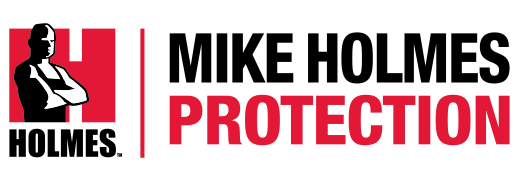Is A Home Warranty Right for You?
Consider many factors when deciding if a home warranty is right for your Rhode Island property. Home systems can fail at any time. Many factors affect this risk. Rhode Island’s coastal conditions and variable winters can stress appliances and systems. A home warranty acts as a safety net for unexpected repairs. It offers predictable costs and less worry. This section breaks down the benefits, risks, and decision-making process.
Understanding Home Warranty Benefits
A home warranty covers repairs or replacements due to wear and tear. It protects systems like HVAC, plumbing, and electrical units. In Rhode Island, these systems face extra stress from salt air and temperature fluctuations.
The plan can cover both major and minor repairs. It helps you avoid significant, unforeseen expenses. The coverage details are clearly defined. Each plan lists what is and is not covered. With this clarity, you know exactly when to call for service. A warranty plan simplifies home management. It offers a reliable backup when systems fail unexpectedly.
The protection extends to appliances. You may not need costly repairs if a covered appliance breaks down. With regular maintenance, the warranty supports your long-term home value.
This benefit is crucial in a market where older homes are ordinary. Homeowners get peace of mind knowing that a service network backs routine maintenance. This level of support is invaluable when facing Rhode Island’s weather extremes.
Assessing Rhode Island Home Risks
Homes in Rhode Island face unique risks. Coastal salt air can cause corrosion. Winters bring freezing temperatures that strain heating systems. Humid summers also add stress. Evaluate the age of your home systems. Consider past repair frequency. Look at your budget for unexpected expenses.
If repairs have been frequent, a warranty can reduce financial shocks. Local weather patterns must be considered. Each risk factor helps determine if coverage is necessary. Your comfort with risk is also essential.
A home warranty offers a buffer against the unpredictability of repair costs. If a system fails, you are not hit with a hefty bill. This predictability can be a financial lifesaver. Homeowners can budget for a small premium instead of a significant repair cost.
The overall risk assessment is part of the decision process. With clear facts in hand, you can compare the warranty cost with potential repair expenses. This clarity leads to a sound financial decision.
The Decision-Making Process
Deciding on a warranty involves weighing costs against benefits. List the systems and appliances that need protection. Compare warranty plans side by side. Consider the service fees and overall pricing. Review customer testimonials and service records.
Local repair responsiveness is crucial. In Rhode Island, quick repairs can reduce damage. Talk to neighbors or local contractors. Gather as much information as possible.
The decision process is thorough. You must compare every aspect of the plan, understand every clause in the contract, and look for hidden fees and exclusions. This level of diligence pays off. The ultimate goal is to protect your home investment.
After considering all factors, you can confidently decide if a warranty is right for you. This process ensures you get the most value from your plan while avoiding unnecessary expenses.
Is A Home Warranty Worth the Cost In Rhode Island?
Determining if a home warranty is worth the cost requires careful evaluation. Repair bills can be steep in Rhode Island. Weather extremes can cause sudden failures. This section analyzes the financial benefits versus the expense of a warranty plan. We compare premiums with potential repair costs. We explore how a warranty plan can safeguard your budget over time.
Analyzing Repair Costs
Repair costs in Rhode Island can vary widely. Replacing a furnace or fixing plumbing issues can be expensive. Home systems are vulnerable to both seasonal wear and unexpected failures. A warranty helps cover these costs.
Without a warranty, you may face high repair bills. Each claim is factored against the annual premium. The potential savings can be significant. When a primary system fails, a warranty provides predictable costs. This stability can prevent financial strain.
The unpredictability of repair costs makes budgeting challenging. A warranty smooths out these spikes. When repairs are needed, the service fee is known in advance. This consistency makes financial planning easier.
It also reduces the stress of waiting for repairs. Homeowners can sleep better knowing that repairs are covered. This is especially important in a state with fluctuating weather conditions.
Comparing Warranty Premiums and Savings
Warranty premiums are paid regularly. They are set at a predictable amount. Compare this cost with potential repair expenses. The annual premium is often less than a single major repair. The warranty plan is designed to offer value over time. Some plans include free service calls up to a limit. The overall cost is lower than paying for each repair separately.
Detailed comparisons show that warranty plans can save money. Many customers report significant savings over time. The key is to choose a plan that fits your home’s needs. Premiums should be compared against the average cost of repairs in your area.
In Rhode Island, where repair costs are high, the balance often favors having a warranty. The plan also reduces the worry about unexpected breakdowns. This predictability is a financial relief. Homeowners gain both savings and peace of mind.
Long-Term Financial Security
A home warranty is an investment in long-term security. It protects your home over many years. The financial risk of sudden, high repair bills is minimized. This investment can also increase your property value. Prospective buyers see the benefit of an active warranty plan. Over time, the warranty plan helps maintain the condition of your home. This is crucial in a competitive real estate market.
The warranty also ensures that routine maintenance is managed efficiently. Over time, this can lead to lower overall repair costs. The long-term benefits go beyond immediate savings. The security of knowing that your home is protected has lasting value.
In a state with volatile weather patterns, long-term planning is essential. A warranty plan is part of that secure future. This assurance contributes to a stress-free home ownership experience.
Who Oversees Home Warranty Companies in Rhode Island?
Understanding oversight in the home warranty industry is crucial. In Rhode Island, multiple layers of regulation protect homeowners. This section details the agencies, laws, and self-regulation measures that ensure companies operate pretty. Comprehensive oversight ensures transparency and accountability.
State Regulatory Agencies
Rhode Island has dedicated agencies that monitor home warranty companies. These agencies enforce licensing rules. Companies must meet strict guidelines and submit to regular audits.
This ensures that all providers maintain industry standards. The agencies work to protect consumers. They monitor pricing, claims handling, and customer service. Their oversight is rigorous and impartial. Homeowners benefit from the strong regulatory framework.
These agencies also offer guidance on consumer rights. They review and update regulations regularly, helping them keep pace with industry changes. Their presence builds confidence among homeowners. It ensures that companies are held to high standards at all times.
Consumer Protection Measures
Rhode Island enforces strict consumer protection laws. These laws ensure fair treatment of warranty claims. Providers must clearly disclose all terms and conditions. Hidden fees or ambiguous language are not tolerated.
The laws give homeowners the right to clear, understandable policies and offer remedies if companies do not comply. Consumer protection is a top priority, and this legal framework ensures that all claims are handled promptly and fairly.
The protection extends to dispute resolution. Homeowners have recourse if a claim is denied unfairly. The legal system supports consumers in these cases. This transparency and accountability are key factors in choosing a provider.
Industry Self-Regulation and Standards
In addition to government oversight, many companies adhere to industry self-regulation. Trade associations set standards for service and claims processing. These standards often exceed state requirements.
Providers agree to abide by these best practices. Self-regulation ensures that companies maintain high-quality service. It encourages continuous improvement. Local reviews and customer feedback play a significant role. Homeowners are better informed as a result.
This self-regulation promotes competition among providers. Companies strive to offer better coverage and faster service. It creates a healthy market environment. The combined efforts of government and industry benefit the consumer. Homeowners enjoy a more transparent and efficient system.
Transparency and Accountability
Every company is required to be transparent about its policies and publish clear terms of service. This allows homeowners to make informed choices. Regular audits and compliance checks enforce accountability.
Companies are held responsible for any deviations. This level of oversight builds trust with consumers. The accountability mechanisms ensure that every claim is processed fairly.
In Rhode Island, both regulatory and self-regulatory measures work together. They ensure that home warranty companies operate with integrity. This system benefits homeowners by reducing the risk of unexpected issues. It also builds a strong reputation for the industry overall.












